Cargando...
Recursos educativos
-
Nivel educativo
-
Competencias
-
Tipología
-
Idioma
-
Tipo de medio
-
Tipo de actividad
-
Destinatarios
-
Tipo de audiencia
-
Creador
Lo más buscado
- Songs for kids
- Capilla Sixtina
- Murales
- Derechos de las mujeres
- Música rock
- Animales transgénicos
- Experimentos sociales
- Ejercicios escolares para niños de 4 años
- lectura para niños
- Arte paleolítico
- Actividad de multiplicaciones
- Lagos de Asia
- Dictado de palabras agudas
- Relieve de América
- Guía del cómic
-

-
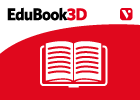
A argumentación
EduBook Organización
- 2370 visitas
Falamos Na vida diaria utilizamos argumentos para defender, reclamar, explicar, convencer, xustificar... Argumentar é dar razóns para apoiar as nosas opinións fronte ás opinións dos demais. Cando…
-
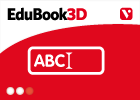
Identifica. Grupo nominal
EduBook Organización
- 2374 visitas
Escribe os grupos nominais que fan de suxeito nestas oracións e os núcleos: A mesa nova de debuxo está raiada. grupo nominal: → núcleo: As maceiras da agra vella xa floreceron. grupo nominal: →…
-

Complete. The economic and social crisis
EduBook Organización
- 2378 visitas
Complete this text with the correct words: In the 17th century there was a in the Spanish Empire. There was less and coming from the Americas. The crisis affected all social groups, especially the .…
-
Self-assessment T05 01 - The Hapsburg period
EduBook Organización
- 2382 visitas
Complete this information about the estates of society in the Modern Age: Privileged groups: nobles. Social groups: Characteristics: Privileged groups: the clergy. Social groups: Characteristics:…
-
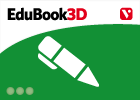
Observe. Industrialisation and Liberalism
EduBook Organización
- 2383 visitas
Look at the timeline: When did Contemporary Times begin? What major changes happened in the 19th century? Look at the illustration: What can you see? What are the people wearing? Which social classes do…
-
Initial evaluation T8 02 - Nutrition, breathing and circulation
EduBook Organización
- 2384 visitas
Mark each sentence as true or false: Food passes from the stomach to the small intestine. The respiratory system expels carbon dioxide from the body. The heart makes red blood cells. Urine is produced…
-
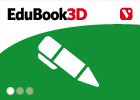
Investigate. Digestive glands
EduBook Organización
- 2374 visitas
A gland is an organ that produces substances that our body needs. These substances may be released inside or outside the body. For example, sweat glands under our skin release sweat outside the body,…
-
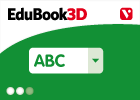
Match. Blood
EduBook Organización
- 2389 visitas
Match the definitions to the terms: They are the most common type of cell in the blood. They are round and red in colour. It is a transparent liquid which is mostly water. It transports nutrients to all…
-

Muscles of the human body
EduBook Organización
- 2371 visitas
These diagrams show the main muscles in the head, the torso, and the arms and legs.
Te estamos redirigiendo a la ficha del libro...













